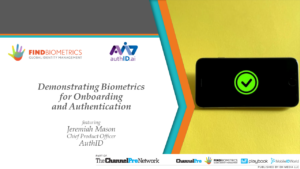Welcome to FindBiometrics’ digest of identity industry news. Here’s what you need to know about the world of digital identity and biometrics today:
Georgia Deploys Biometric Border Screening Tech
The Interior Ministry for the country of Georgia has announced the launch of a facial recognition system along border checkpoints. The Ministry says the biometric technology will help authorities to quickly and accurately identify deported and banned individuals as well as wanted criminals. It also said the system will help Georgia to meet the impending security requirements of the European Union’s Schengen Area for visa-free travel. The news arrives alongside the Public Service Development Agency’s announcement that Georgia’s biometric passports and e-ID cards had attained International Civil Aviation Organisation compliance.
Swedish Police Pursue Facial Recognition, Drone Tech to Tackle Gang Violence
Swedish police are looking to surveillance technologies to tackle heightened gang violence in the country, with proposed legal changes expected to allow for the greater use of facial recognition and drones. “In a situation where fewer and fewer people dare to talk to the police, the need for technical evidence is crucial, and we already know that cameras are extremely important,” said Swedish Justice Minister Gunnar Strömmer. Much of the recent violence has been attributed to organized crime’s recruitment of young people from the country’s recent immigrant communities.
Google Steps Up Biometric Tech in New Flagship Devices
Google’s newest Pixel smartphone, the Pixel 8, has been unveiled, and features “Class 3” facial recognition technology, according to the tech giant’s classification system. That’s a considerable improvement over the Pixel 7’s “Class 1” technology, which was too weak to be used to authorize app logins or payments — applications that the Pixel 8 will allow. While the Pixel 8 doesn’t use the sophisticated 3D imaging featured in the Pixel 4, Google says its latest facial recognition tech was enhanced using Machine Learning and AI.
Google has also revealed the Pixel Watch 2, which features new biometric sensors. In addition to a heart rate monitoring capability, it has a continuous electrodermal activity (cEDA) monitor, which can scan the user’s sweat. Combining that data with pulse and heart rate variability, as well as data from a skin temperature sensor, enables the device to estimate when the user is stressed. What’s more, the back of the device’s chassis has been redesigned so as to maintain constant contact between the sensors and the user’s skin, allowing for more reliable readings.
SIA Teams Up With IDSA
The Secure Identity Alliance has signed a Memorandum of Understanding with the Identity Defined Security Alliance, with the organizations agreeing to work together on a “combined activity program” that will cover topics including biometrics, the intersection of AI and identity, Customer Identity and Access Management, and matters related to Know Your Customer regulations. “This MoU enables the SIA and IDSA to align their resources and jointly disseminate knowledge and practical guidance on digital ID, identity assurance, and identity-centric security approaches that will deliver long term benefits to public and private organizations around the world,” explained SIA Chairman Didier Trutt.
authID Reports Big Boost in Sales for Q3
authID saw a 300 percent increase in quarter-over-quarter sales, the company has announced. The biometric identity technology specialist says it had over $1 million in “Booked Annual Recurring Revenue” (a non-GAAP measure), offering an upbeat preview of its broader results for the third quarter, which will be filed in due course. authID says that BARR figure is four times higher than the highest quarterly gross BARR that the company has ever booked. In addition to signing several renewals, which aren’t counted toward BARR, authID established contracts with new clients including a “major money services company”, a digital bank, and a healthcare services provider.
Zwipe Joins EMVCo Partner Program
Zwipe has become an EMVCo Subscriber, joining a program aimed at encouraging participation in the technical body’s work. Subscribers get access to insider information like draft documents and proposed changes to EMV Specifications, as well as a direct contact channel for feedback or guidance on technical issues. In announcement its membership, Zwipe noted that it aims to contribute to EMVCo’s “Biometric on Card” efforts, which would in turn impact the development and commercialization of the kinds of fingerprint-scanning payment cards in which Zwipe specializes.
FaceTec Biometrics Powers British IDSP’s New e-Signature Solution
VirtualSignature-ID, a certified Identity Services Provider under the United Kingdom’s Digital Identity & Attributes Trust Framework (DIATF), has launched an e-signature platform that leverages 3D biometric liveness detection and anti-spoofing technology from FaceTec. The SmartSign-Plus Advanced eSignature application is aimed primarily at the legal, financial, accounting, and property sectors, and is being pitched as a tool to help companies working in those areas to attain compliance with KYC, AML, and background screening regulations. In addition to use biometrics for identity verification, the e-signature platform records time, date, and geolocation data for an auditable paper trail.
HYPR Launches Identity Solution for the Workplace
New York-based Hypr has announced Hypr Affirm, an identity verification platform for the enterprise. The platform revolves around the use of facial recognition backed by liveness detection, with support for document verification as well. It also has “chat and video interaction” features, according to a statement announcing the platform, and is meant to offer a comprehensive identity solution that can be applied at all the different stages of the identity lifecycle, such as onboarding, routine access, and step-up authentication sessions. Hypr Affirm is designed to complement the company’s existing Hypr Authenticate and Hypr Adapt solutions, all of which have been consolidated into an overarching platform called “Identity Assurance”.
–
October 4, 2023 – by Alex Perala







Follow Us